-
 bitcoin
bitcoin $87959.907984 USD
1.34% -
 ethereum
ethereum $2920.497338 USD
3.04% -
 tether
tether $0.999775 USD
0.00% -
 xrp
xrp $2.237324 USD
8.12% -
 bnb
bnb $860.243768 USD
0.90% -
 solana
solana $138.089498 USD
5.43% -
 usd-coin
usd-coin $0.999807 USD
0.01% -
 tron
tron $0.272801 USD
-1.53% -
 dogecoin
dogecoin $0.150904 USD
2.96% -
 cardano
cardano $0.421635 USD
1.97% -
 hyperliquid
hyperliquid $32.152445 USD
2.23% -
 bitcoin-cash
bitcoin-cash $533.301069 USD
-1.94% -
 chainlink
chainlink $12.953417 USD
2.68% -
 unus-sed-leo
unus-sed-leo $9.535951 USD
0.73% -
 zcash
zcash $521.483386 USD
-2.87%
How to predict the direction when the MACD fast and slow lines stick together near the zero axis?
When the MACD fast and slow lines stick together near the zero axis, it signals market indecision, often preceding a potential breakout in cryptocurrency trading.
Jun 22, 2025 at 03:50 am
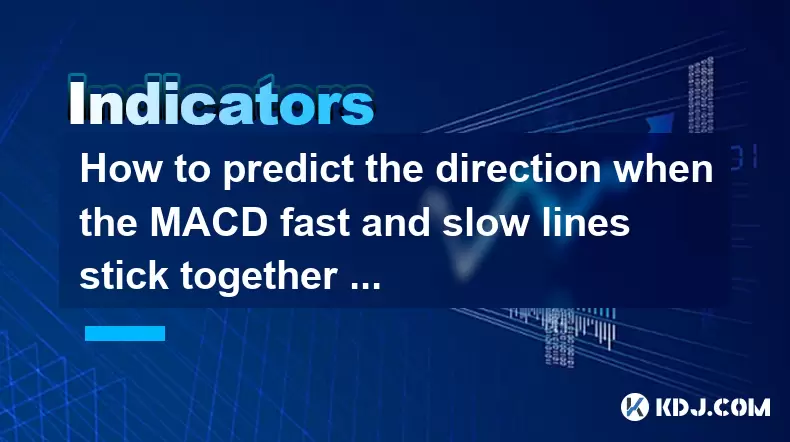
Understanding the MACD Indicator
The Moving Average Convergence Divergence (MACD) is a widely used technical analysis tool in cryptocurrency trading. It consists of three main components: the fast line, the slow line, and the signal line. The fast line represents the difference between two exponential moving averages (usually 12-period and 26-period EMAs), while the slow line acts as the signal line, typically a 9-period EMA of the fast line.
When traders observe the MACD fast and slow lines sticking together near the zero axis, it indicates a period of market indecision or consolidation. This situation often occurs after strong price movements or during sideways market conditions. Understanding how to interpret this phenomenon can provide valuable insights into potential trend reversals or continuations.
Key Insight: When the MACD fast and slow lines converge near the zero line, it suggests that momentum is weakening, and the market may be preparing for a breakout.
Identifying Market Context Before the Crossover
Before interpreting the significance of the MACD fast and slow lines sticking together, it’s crucial to analyze the price action preceding this event. In the cryptocurrency market, context plays a vital role in determining whether this pattern leads to a bullish or bearish move.
If the convergence occurs after a prolonged downtrend, it might indicate that selling pressure is subsiding and buyers could soon take control. Conversely, if the MACD lines come together after an uptrend, it could mean that bulls are losing strength and a reversal may be imminent.
Important Note: Always examine candlestick patterns and volume indicators alongside MACD to confirm the likelihood of a directional move.
Monitoring Volume and Price Action During the Convergence
During the period when the MACD fast and slow lines stick together, traders should closely monitor volume levels and price behavior. A drop in volume usually signals reduced interest from market participants, reinforcing the idea of consolidation.
However, if volume starts increasing while the MACD lines remain close, it may suggest that institutional or large-cap traders are accumulating or distributing positions, which could lead to a sharp breakout.
Actionable Tip: Look for signs like long wicks, tight ranges, or sudden spikes in volume during the convergence phase to anticipate possible breakouts.
- Observe whether the price forms a clear support or resistance level during the consolidation.
- Check if there are any significant news events or on-chain metrics influencing the price action.
- Use additional tools like Bollinger Bands or RSI to gauge overbought or oversold conditions.
Analyzing the Direction of the First Breakout
Once the MACD fast line separates from the slow line, it provides the first clue about the direction of the upcoming move. If the fast line crosses above the slow line, it generates a bullish signal, especially if it happens with rising volume and positive price action.
Conversely, if the fast line moves below the slow line, it indicates bearish momentum building up. However, due to the volatile nature of cryptocurrencies, false signals are common, so confirmation from other sources is essential.
Critical Factor: The speed and magnitude of the initial crossover determine the strength of the emerging trend.
- A sharp divergence following the convergence often indicates a stronger trend.
- If the crossover is shallow and quickly reverts, it may signal continued range-bound movement.
- Combine with Fibonacci retracement levels to identify key zones where the trend may resume.
Using Multi-Timeframe Analysis for Confirmation
To enhance accuracy when the MACD fast and slow lines stick together near the zero axis, traders should use multi-timeframe analysis. For example, observing the MACD behavior on both the 4-hour and 1-hour charts can help filter out noise and confirm the validity of the signal.
If both timeframes show similar patterns—such as a bullish crossover forming after a consolidation—it increases the probability of a successful trade.
Strategic Move: Use higher timeframes to determine trend bias and lower timeframes for entry timing.
- Align your trade direction with the trend observed on the daily or weekly chart.
- Wait for the lower timeframe to confirm the signal before entering a position.
- Set stop-loss orders based on recent volatility or key support/resistance levels.
Frequently Asked Questions
Q: What does it mean when the MACD fast and slow lines stay together for a long time?A prolonged period of MACD fast and slow line convergence typically reflects extended market indecision. In crypto markets, this often precedes major breakouts or breakdowns once momentum resumes.
Q: Can I rely solely on MACD for making trading decisions during convergence?No, MACD alone isn't sufficient. You should always cross-check with other indicators such as RSI, volume, and price patterns to avoid false signals, especially in highly volatile crypto assets.
Q: Is it better to wait for the MACD lines to separate before taking a position?Yes, waiting for a clear separation between the fast and slow lines improves the reliability of the signal. Entering too early during the convergence phase can expose you to unnecessary risk.
Q: How does the MACD behave differently in trending versus ranging crypto markets?In trending markets, the MACD lines diverge more clearly, showing strong momentum. In ranging markets, they tend to stick together frequently, reflecting the lack of directional bias.
Disclaimer:info@kdj.com
The information provided is not trading advice. kdj.com does not assume any responsibility for any investments made based on the information provided in this article. Cryptocurrencies are highly volatile and it is highly recommended that you invest with caution after thorough research!
If you believe that the content used on this website infringes your copyright, please contact us immediately (info@kdj.com) and we will delete it promptly.
- Bitcoin Faces Identity Crisis as Speculators Flock to Prediction Markets and Ultra-Short Options
- 2026-02-02 00:30:06
- MGK and Jelly Roll Honor Ozzy Osbourne at Pre-Grammy Gala, Sparking Fan Frenzy
- 2026-02-02 00:50:02
- Super Bowl Coin Flip: Unpacking the Prediction Power of Heads or Tails
- 2026-02-02 01:30:01
- Litecoin Price Cracks 9-Year Floor Amidst Market Breakdown: What's Next for the OG Crypto?
- 2026-02-02 01:20:02
- Crypto News, Cryptocurrency Markets, Latest Updates: A Topsy-Turvy Start to 2026
- 2026-02-02 01:15:01
- New York Minute: LivLive Presale Ignites, While Solana Navigates Choppy Waters
- 2026-02-02 01:15:01
Related knowledge
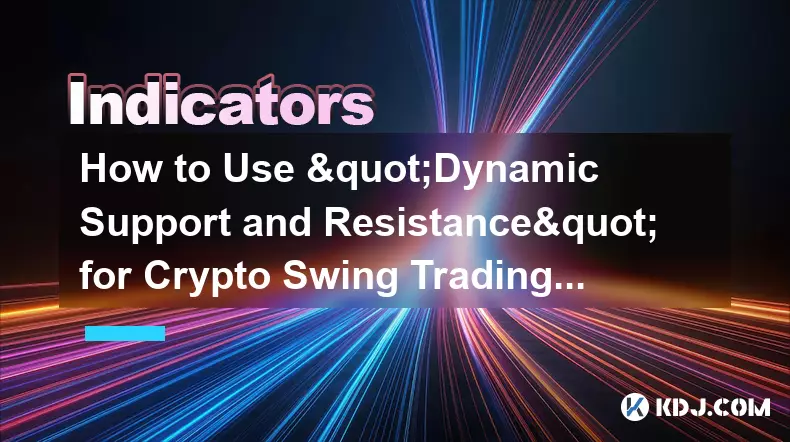
How to Use "Dynamic Support and Resistance" for Crypto Swing Trading? (EMA)
Feb 01,2026 at 12:20am
Understanding Dynamic Support and Resistance in Crypto Markets1. Dynamic support and resistance levels shift over time based on price action and movin...
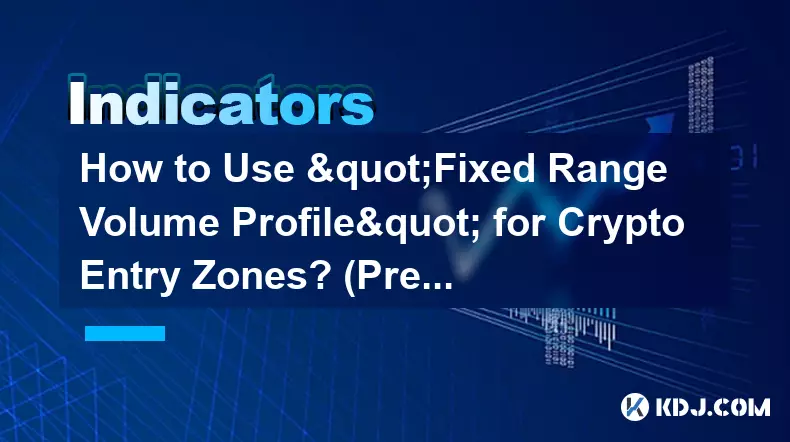
How to Use "Fixed Range Volume Profile" for Crypto Entry Zones? (Precision)
Feb 01,2026 at 10:19pm
Understanding Fixed Range Volume Profile Mechanics1. Fixed Range Volume Profile (FRVP) maps traded volume at specific price levels within a defined ti...
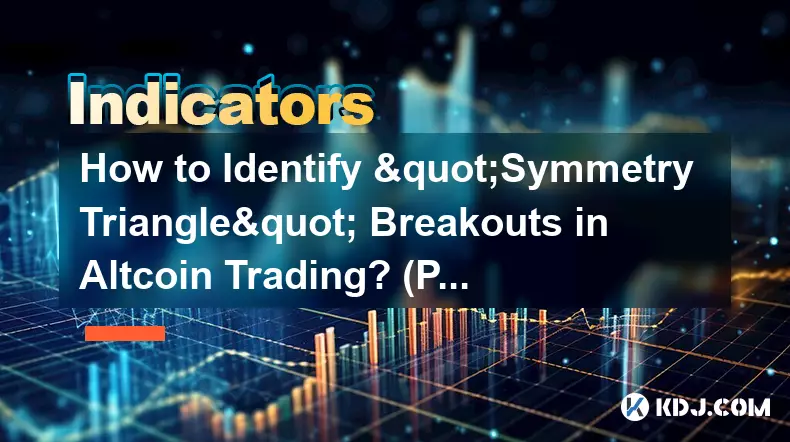
How to Identify "Symmetry Triangle" Breakouts in Altcoin Trading? (Patterns)
Feb 01,2026 at 01:39pm
Symmetry Triangle Formation Mechanics1. A symmetry triangle emerges when price action consolidates between two converging trendlines—one descending an...
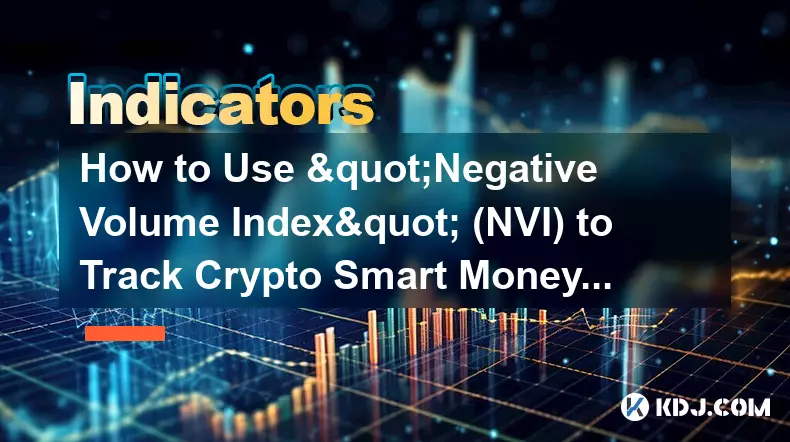
How to Use "Negative Volume Index" (NVI) to Track Crypto Smart Money? (Pro)
Feb 01,2026 at 02:40am
Understanding NVI Mechanics in Crypto Markets1. NVI calculates cumulative price change only on days when trading volume decreases compared to the prio...

How to Spot "Absorption" in Crypto Order Books? (Scalping Technique)
Feb 01,2026 at 08:39pm
Understanding Absorption Mechanics1. Absorption occurs when large buy or sell orders repeatedly appear and vanish at the same price level without trig...
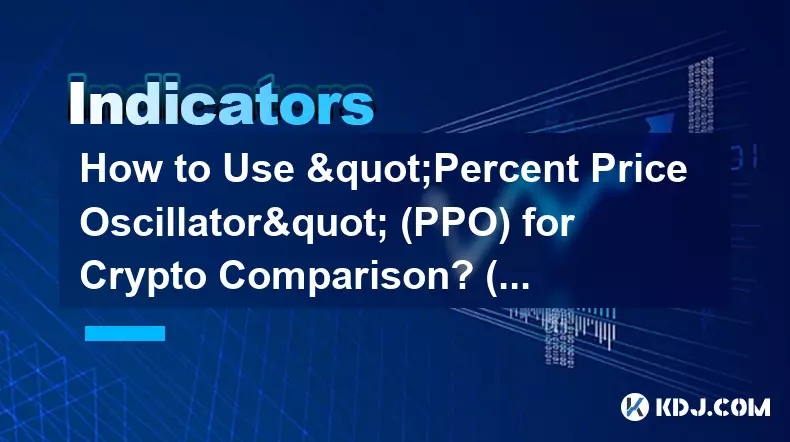
How to Use "Percent Price Oscillator" (PPO) for Crypto Comparison? (Strategy)
Feb 01,2026 at 01:59am
Understanding PPO Mechanics in Volatile Crypto Markets1. The Percent Price Oscillator calculates the difference between two exponential moving average...

How to Use "Dynamic Support and Resistance" for Crypto Swing Trading? (EMA)
Feb 01,2026 at 12:20am
Understanding Dynamic Support and Resistance in Crypto Markets1. Dynamic support and resistance levels shift over time based on price action and movin...

How to Use "Fixed Range Volume Profile" for Crypto Entry Zones? (Precision)
Feb 01,2026 at 10:19pm
Understanding Fixed Range Volume Profile Mechanics1. Fixed Range Volume Profile (FRVP) maps traded volume at specific price levels within a defined ti...

How to Identify "Symmetry Triangle" Breakouts in Altcoin Trading? (Patterns)
Feb 01,2026 at 01:39pm
Symmetry Triangle Formation Mechanics1. A symmetry triangle emerges when price action consolidates between two converging trendlines—one descending an...

How to Use "Negative Volume Index" (NVI) to Track Crypto Smart Money? (Pro)
Feb 01,2026 at 02:40am
Understanding NVI Mechanics in Crypto Markets1. NVI calculates cumulative price change only on days when trading volume decreases compared to the prio...

How to Spot "Absorption" in Crypto Order Books? (Scalping Technique)
Feb 01,2026 at 08:39pm
Understanding Absorption Mechanics1. Absorption occurs when large buy or sell orders repeatedly appear and vanish at the same price level without trig...

How to Use "Percent Price Oscillator" (PPO) for Crypto Comparison? (Strategy)
Feb 01,2026 at 01:59am
Understanding PPO Mechanics in Volatile Crypto Markets1. The Percent Price Oscillator calculates the difference between two exponential moving average...
See all articles










































































